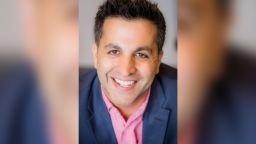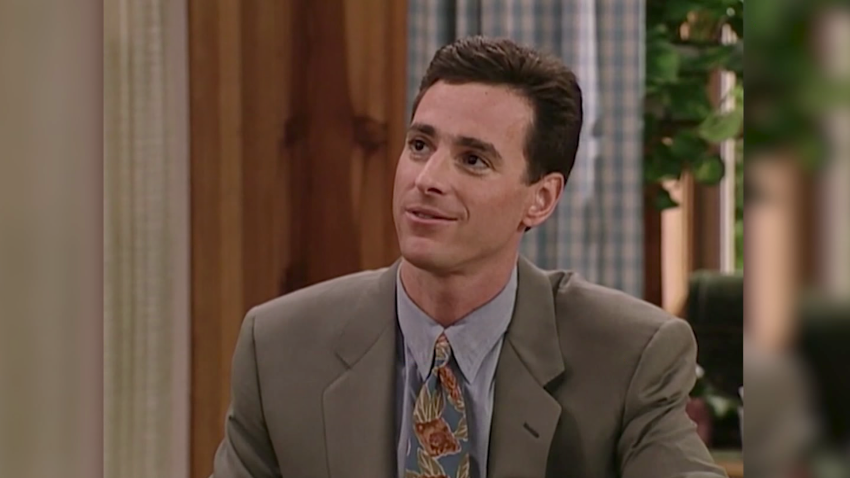Editor’s Note: Paul Farahvar is a touring stand-up comedian based in Chicago. A regular at Laugh Factory and Zanies, he hosts the podcast “Singles Only” and hosts monthly shows about dating and comedy at the World Famous Laugh Factory. Prior to comedy, Paul was a trial lawyer. The views expressed here are his own. View more Opinion on CNN.
Usually when a comedian’s name is trending on social media, it’s because they did something questionable that’ll likely end with cancellation. But because you will never hear anyone say anything bad about Bob Saget, I knew when I saw his name in social feeds on Sunday that this was something more ominous.

I waited, hoping someone would say it wasn’t true, but it was later confirmed: Saget had died at the age of 65.
In the days that followed, many people, especially comedians, have shared stories about Saget’s talent, but also his kindness and support. For some, he was a father figure from his days on “Full House.” For others, he was their favorite comedian – one with an unflinching sense of dark humor.
For me, it was personal: Bob Saget literally changed the entire arc of my life.
On April 1, 2011, I was a partner at a small litigation firm in Chicago. The combative world of judges and attorneys drained me mentally and physically. I no longer had time for my personal passions, including playing guitar and managing musicians. Looking for a creative outlet, I’d begun taking weekly improv classes at the legendary Second City theater with a friend. I thought maybe it could help me become a better litigator.
This friend also happened to perform stand-up, and on that April day he was opening for a sold-out Bob Saget show in nearby Hammond, Indiana. He invited me to tag along to keep him calm and “manage” him, given my talent management background.
As I walked up to the theater, I saw Saget exit his limo. Thanks to a few drinks from the Cubs’ opening home game (they lost), I had the courage to approach him. When I introduced myself as a friend and “manager” of his opening act, Saget immediately shook my hand.
Noticing my Cubs gear, he disarmed me with a discussion about baseball and guitars, the latter of which he played in part of his stand-up set. I remember how kind and sincere he was, asking follow-up questions as we walked through the venue looking for the green room. What celebrity is cordial to a manager, let alone a pseudo-manager? That’s the kind of person Saget was. When we ran into one another backstage before the show, he even invited me to hang out in his green room as he tuned his guitar, letting me try my hand at playing it.
As I began strumming, I filled the empty space with a comical yet self-deprecating anecdote about my music days, telling him how I played in multiple bands and got fired from multiple bands, even though I was the one who put the bands together. My head was down, focused on the guitar, yet I heard a distinct and familiar noise: a whole-hearted laugh. I’d made someone famous laugh! And not just anyone; Danny Tanner! Bob Saget from “The Aristocrats!” He laughed. Out loud. At something I said. What happened next was even more surreal.
“You should do that bit tonight on stage,” he told me. I thought maybe he’d mistaken me for my friend, so I informed him that I wasn’t performing and that wasn’t a rehearsed bit – I’d never done stand-up before, I said, and in fact litigated for a living. Saget was unfazed, and actually seemed more convinced to have me go up. (In hindsight, it makes sense; he shocked people for a living when he worked blue on stage, especially those who knew him as “Full House’s” virtuous single father. What’s more shocking than a funny lawyer?)
Even though he continued to goad me to go on, I knew to quit while I was ahead. I’d made Bob Saget laugh. That was enough for the night.
But his encouragement lingered in my mind as I watched his show. It felt like some approval I had been searching for all my life. I cannot tell you what judges or juries have said about me from my years as an attorney, but even as I write this 11 years later I distinctly remember Bob Saget’s laugh in that green room. While I was a fan of watching stand-up comedy, performing it was never on my radar.
I don’t know what he was thinking, or why he seemed invested in seeing me perform. And maybe my interpretation was clouded by the drinks I’d had at that Cubs game. But because of my newly discovered confidence in my comedic abilities, I performed at my first open mic the very next day.
When it was my turn, I repeated the story that had tickled Saget, and it was a hit once again. I was hooked. The immediate rush of adrenaline from the audience’s response far exceeded the wins I’d experienced in even high-profile cases. The power of those laughs propelled me to heights I’d never had in a courtroom. And this was an open mic with 20 people in the room, for zero pay.
For some time, I actually did become a better – and funnier – attorney. But after a few years of performing comedy on the side, I left my law firm to pursue what I feel is my natural calling. Today, I am a full-time stand-up comedian.
I often think about what would have happened if I didn’t make that show and never met Bob Saget. Would I eventually have found my way to comedy? Or would I still be miserably attending court calls during the week and searching for a creative purpose on weekends, playing in a Dave Matthews cover band in the suburbs of Chicago?
I recently reached out to Saget to make sure he knew this story, as I have told it in nearly every interview when asked about my comedy “origin story.” I heard through the grapevine that he knew. But last year, 10 years after our encounter, I messaged him directly to make sure he realized what he meant to me – and not just for his encouragement, but also for his stand-up; “The Aristocrats” documentary; his autobiography “Dirty Daddy”; his hilarious tweets; and of course “Full House” and “America’s Funniest Home Videos,” which were staples of my childhood.
As he recalled in his book, when comedians came to him for advice Saget would share what Don Rickles once told him about audiences: “They wanna stop you. Nobody wants to help you. Just go forward … like a tank.”
Off-stage, Bob Saget did the opposite. All he ever did was support and help. For better or worse, Bob Saget is the reason I am a stand-up comedian. He is the reason I know I am funny. He is the reason I am happy. Maybe I would have eventually found another way to stand-up, but my journey started with Bob’s kindness and encouragement. Along with our fellow comedians and fans, I’m forever grateful for the positive influence he spread while he was alive.







